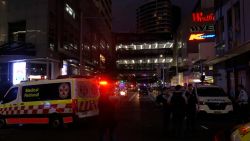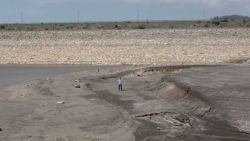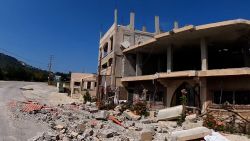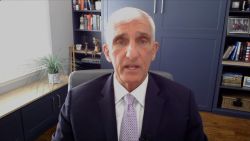The second fatal crash of a Boeing 737 MAX 8 in six months raises the question: Is the plane safe to fly?
Following a crash in the Ethiopian capital of Addis Abba on Sunday, aviation safety experts and regulators from around the world are divided on the question.
“I’ve never said that it’s unsafe to fly a particular model of aircraft, but in this case, I’m going to have to go there,” said David Soucie, a former FAA safety inspector who is now a CNN safety analyst. “I would watch for that aircraft. I’m so sorry to say that.”
Soucie said he would not get on a 737 MAX 8 plane today because travelers don’t have enough information.
After the Lion Air crash last October near Jakarta, Indonesia, Boeing issued a bulletin and recommended that all pilots take training to not make the same mistake made in that crash, but the training was not made mandatory.
“The training that was recommended by Boeing after the Lion Air accident, there’s no way for me to know whether the airline I’m on or the pilot that’s flying had that training or not,” Soucie said. “If there was a way for me to know that, then I would most definitely get on that airplane.”
Some of the planes have already been pulled out of service – the Civil Aviation Administration of China ordered 737 MAX 8’s out of service, and Ethiopian Airlines, the operator of the crashed plane, and Cayman Airways both grounded their fleets as a precaution.
But at the same time, Peter Goelz, a former managing director of the National Transportation Safety Board and a CNN aviation analyst, said he believes that flight crews “are concerned” but it’s too early for American authorities to do the same thing.
“I think it’s premature to ground the fleet,” he said. “But I think it’s certainly an item that’s on the top of everyone’s agenda.”
The turning point, Goelz said, would be if investigators link the October crash involving a Lion Air plane and the Ethiopian crash.
In that case, he said, “You’ll see the fleet come down.”
In the United States, the Federal Aviation Administration weighed in on Monday, saying it was still reviewing any links between the October crash and the Ethiopian Airlines incident over the weekend.
“This investigation has just begun and to date we have not been provided data to draw any conclusions or take any actions,” the FAA said in a Continued Airworthiness Notification to the International Community.
It said “design changes” to the plane’s “flight control system” would be implemented by April. A preliminary report said the pilots in the Lion Air crash struggled with a safety system designed to prevent the system from stalling, which was receiving faulty data, and the pilots union said details of the system were not included in the airplane manual.
In a message to employees on Monday, Boeing CEO Dennis Muilenburg said the company is “fully supporting our customer and the investigation and providing technical assistance at the request and under the direction of the U.S. National Transportation Safety Board and Ethiopian authorities.”
“Though many questions remain at this time, we’re committed to understanding all aspects of this accident,” Muilenburg wrote.
Passenger aircraft go through extensive evaluation, testing and review before the first paying passenger ever buckles a seat belt.
That’s why regulators so rarely order an entire model of passenger airplane pulled from service.
One has to look back to 1979 for a similar example. That’s when the FAA grounded all DC-10 passenger jets for 37 days after an engine broke off during takeoff. The crash killed all 271 people on board.
That order came after further study found other planes with similarly cracked mounts.

















